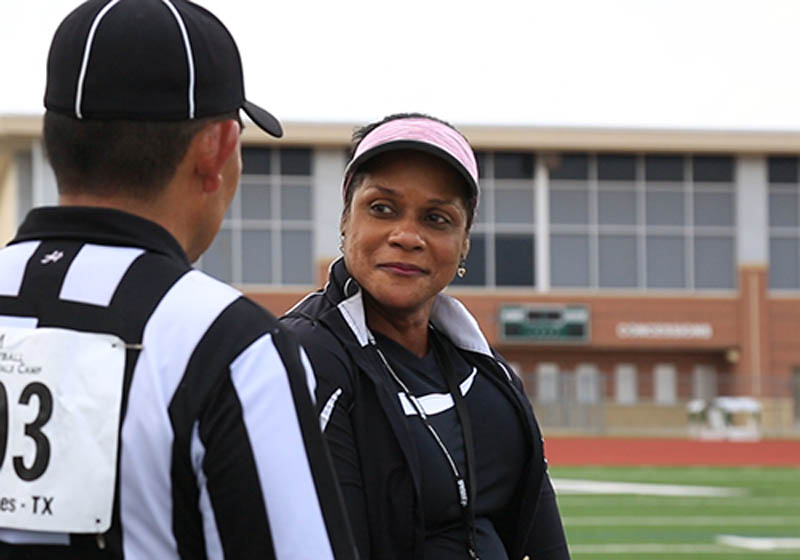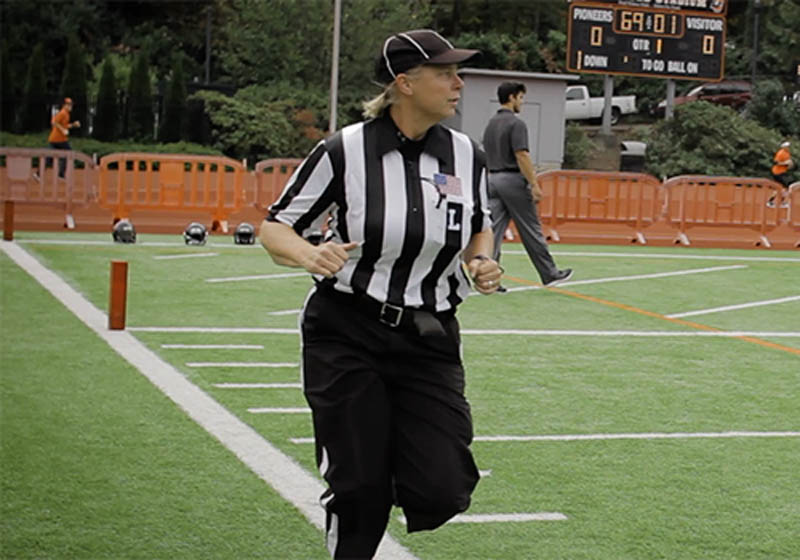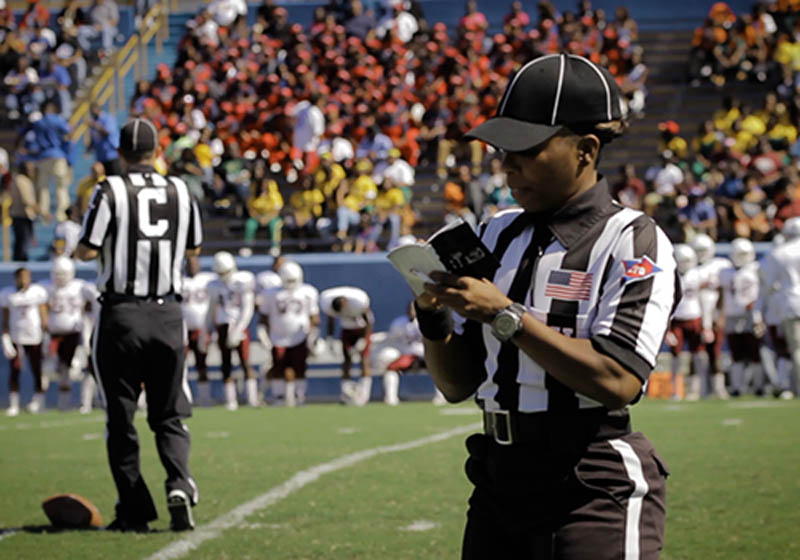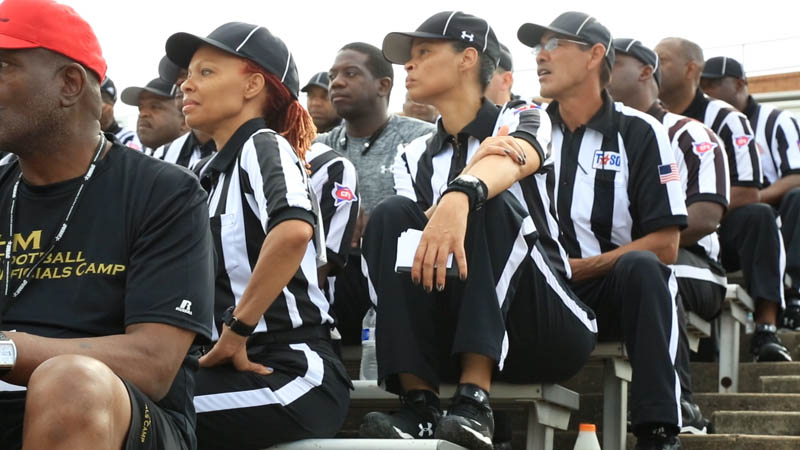If you ever get the chance to meet Shantel Hansen, it will be clear from the start that she has a true passion for the people and the subject matter in her documentary, Her Turf.
The independent, short film follows three female football referees as they attempt to level the playing field and find success doing what they love. It’s a snapshot of three trailblazers, their love of sports, and a discussion of gender representation and identity.
“I’ve always been interested in subcultures and how they impact the larger culture,” explains Shantel, who came to the documentary-making process as an anthropologist. “With sports you get a mixture of socioeconomic and cultural groups. And then there is a subculture within that group that impacts them. Teams, players, coaches, championships…it can be make-or-break based on a single call.”
Sports seemed like a natural path for Shantel to take to present and discuss larger issues within the culture.
“I can bring people in through sports to talk about ideas of gender and identity,” she says.
For any documentary maker, whether a first timer like Shantel or an experienced filmmaker and storyteller, the process – from initial idea to final product – is complex and not without a learning curve. Even after post-production wraps, the artist continues to work on promotion and distribution.
And every step along the way takes time…and money.

The Library’s Nonprofit Services
Independent artists and filmmakers have to balance their creative goals with fundraising efforts. And that’s one area where Poudre River Public Library District can be a real asset.
“I was shocked at what the Library has, just in terms of databases and resources available and how specific they are,” says Shantel. “It really opened my eyes to different resources available for creative projects.”
Even while still in pre-production – researching her topic and interviewing male and female officials – Shantel found her way to the Library and to Nonprofit Resources Librarian Sarah Scobey.
“I spent a whole year researching, and I knew finding sponsorships would help support the pre-production phase. With Sarah’s help, I learned about databases like Colorado Grants Guide and the Foundation Center Grants for Individuals and how to navigate them to find grant makers and potential sponsors for my project,” she says.
During the early stages of the project, Shantel also met one-on-one with Sarah and was frequently in touch by email to brainstorm ideas and better understand the grant application process.
“It was all part of the learning process. There’s the database support I received from Sarah, but there’s also the emotional support – having a conversation with someone who is coming from a different perspective,” says Shantel. “I was working with Sarah before I was even filming, talking with her during pre-production, stayed in touch during filming, and now I’ve swung back around. I’ve secured my first grant and now I’m back having new conversations with Sarah.”

Shantel secured a fiscal sponsor in the International Documentary Association (IDA), considered the super power of fiscal sponsors for documentary makers.
Fiscal sponsorship is a well-established model of nonprofit funding in the arts where an established 501(c)(3) nonprofit organization serves as the administrative “home” of the project. It is a method of attracting donors and ensuring accountability when the artist, filmmaker, or project manager is not recognized as a certified nonprofit.
Shantel describes her collaboration with Sarah as “priceless.”
“It’s the one-on-one piece that’s been valuable. Sarah’s invested in this process, too. It’s not a surface level conversation. There’s always been more depth and that’s rare,” she explains.
“Her Turf” has been selected for various film festivals around the world and been honored with the Independent Shorts Award and the Van Gogh Award at the Amsterdam Film Festival.
Nonprofit Resources Librarian Sarah Scobey can’t wait to see where Shantel takes her documentary: “Working with Shantel is a true joy! She has been strategic in her entire approach of getting her documentary made; as an independent artist, securing a fiscal sponsor the likes of the International Documentary Association, was a stroke of genius and a tribute to her savvy, creativity, and professionalism.”

Shantel has turned some of her attention toward a new documentary project and is already reaching out to grant makers as she begins her pre-production reading and research. And she’s already looking forward to working with the Library District again.
“Sarah can’t get rid of me; I’m hooked,” she says.
To meet with Sarah to discuss your nonprofit organization or independent project, please complete the Request Appointment form. You can also visit the Nonprofit Resources webpages to see more Library and community programs, services, and resources to help you with your nonprofit goals.
For more information about Shantel Hanson and “Her Turf,” visit the website www.herturf.com. You can even make a donation to support further distribution of the documentary.

